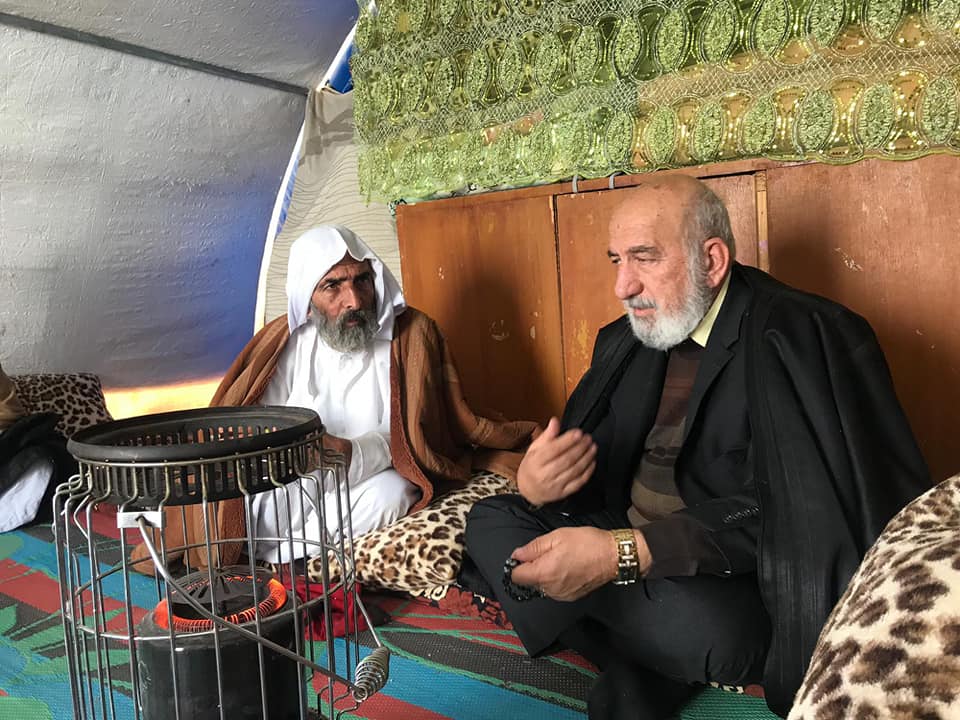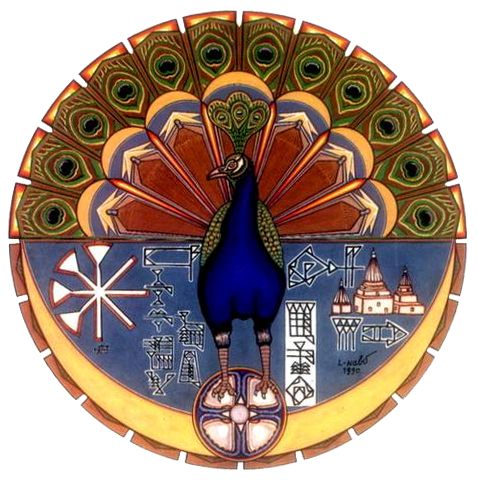Experts: NICT Remedies Past Injustices, Deters Future Atrocities
[Lalish, Ezidikhan, Iraq. 14 May 2023] The Justice Minister of Ezidikhan, Nallein Sowilo, has applauded Armenia’s decision to collaborate with Ezidikhan in establishing and promoting adoption of the Nations’ International Criminal Tribunal (NICT) Charter by countries and indigenous nations worldwide.
The NICT Charter was initially proposed by the Ezidikhan government as a legal code and tribunal mechanism to hold accountable those individuals and entities charged with crimes of genocide, culturicide, and crimes against humanity committed against indigenous peoples. The Charter also stipulates how and under what conditions accused persons or entities may be brought to trial to face their accusers at the NICT.
Ezidikhan’s Prime Minister Barjis Soho Khalaf recently announced that that his government is “firmly committed to upholding the purpose and principles of this Charter and the International Covenant on the Rights of Indigenous Nations. The NICT will ensure that nations or states try to repair any harm resulting from the commission of a crime through restorative justice rather than through punitive justice alone.”

“The NICT will ensure that nations or states try to repair any harm resulting from the commission of a crime through restorative justice rather than through punitive justice alone.”
-Ezidikhan Prime Minister Barjis Soho Khalaf
The Center for World Indigenous Studies (CWIS) has been responsible for coordinating development of the NICT Charter on behalf of Ezidikhan and allied nations since 2018. At the request of the Ezidikhan government, the CWIS established an international Charter panel of legal experts headed by Bedouin tribal member and international human rights attorney Mohamed Aboelazm to draft the Tribunal document. Also included on the panel are:
- Nallein Sowilo, Ezidikhan Justice Minister
- Dr. Mareen Eke, member of the Igbo of Biafra in Nigeria
- Andrew Reid, noted human rights attorney for American Indian nations
- Dr. Hiroshi Fukurai, Legal and Human Rights expert
- Fancesco Chessa, Indigenous Law attorney
- Dr. Rudolph C. Ryser, CWIS Chairman and International Relations expert
- Irene Delfant, Communications Consultant
- Aline Casteñada, Executive Assistant
Universal Jurisdiction
The Charter of the NICT expands upon the International Genocide Convention and current international law to extend legal provisions designed to protect indigenous peoples and nations together with their ancestral lands, their water rights and natural resources as well as their languages and cultures.
When the United Nations adopted the International Genocide Convention of 1948, it failed to include protections for indigenous peoples with the removal of references to cultural crimes from the draft Convention. Drafters of the U.N. Convention feared many states would not ratify the 1948 law if it provided protections that could result in leaders of states’ governments or other officials being charged with crimes against indigenous peoples within their territories.
International law recognizes that certain crimes are so serious that the duty to prosecute them transcends all borders, giving rise to “Universal Jurisdiction” over grave crimes in violation of international law, such as crimes against humanity, war crimes, genocide, and torture. Universal Jurisdiction is based on the idea that since perpetrators who commit such heinous crimes are hostes humani generis—“enemies of all mankind”—any nation should have the authority to hold them accountable, regardless of where the crime was committed or the nationality of the perpetrator or the victim.
Justice Minister Sowilo and Ezidikhan Prime Minister Barjis Soho Khalif had been negotiating with Armenian officials since March 2022 to enlist Armenia’s support for the Tribunal. While Armenia has declined to host the tribunal, it has pledged to work with the Ezidikhan government and other governments to promote the NICT and its adoption.
The NICT Charter would establish a Nations’ International Criminal Tribunal having the power to exercise its jurisdiction over persons, organizations, and governments for the gravest offenses of concern to all peoples. The wide range of convictable crimes covered by the Charter include colonization, acts of aggression, genocide, war crimes, crimes against nature, ecocide and culturecide, terrorism, gender-based violence and femicide, forced removal of children, apartheid, and military occupation.

Ezidikhan’s fledgling diplomatic corps, under Baba Salem of Ezidikhan’s Supreme Spiritual Council, is planning to urge indigenous nations such as the Navajo, Maori, Ainu, Cree, and Q’anjub’al (residing in the USA, New Zealand, Japan, Canada, and Guatemala respectively) to become NICT Charter members. With Armenian encouragement and support, Yezidi diplomats will also reach out to the governments of Belgium, Canada, France, Germany, Italy, Norway, Australia, Sweden, Bolivia, and other states to build further support for the Charter of the NICT.
This movement comes in the wake of more than 160 alleged crimes of genocide resulting in an estimated toll of twelve million deaths that have been committed against indigenous peoples since the end of World War Two. Sowilo further emphasizes that her government’s collaboration with Armenia is “a significant step forward in addressing the ongoing crimes against indigenous peoples and promoting accountability for those responsible”.


